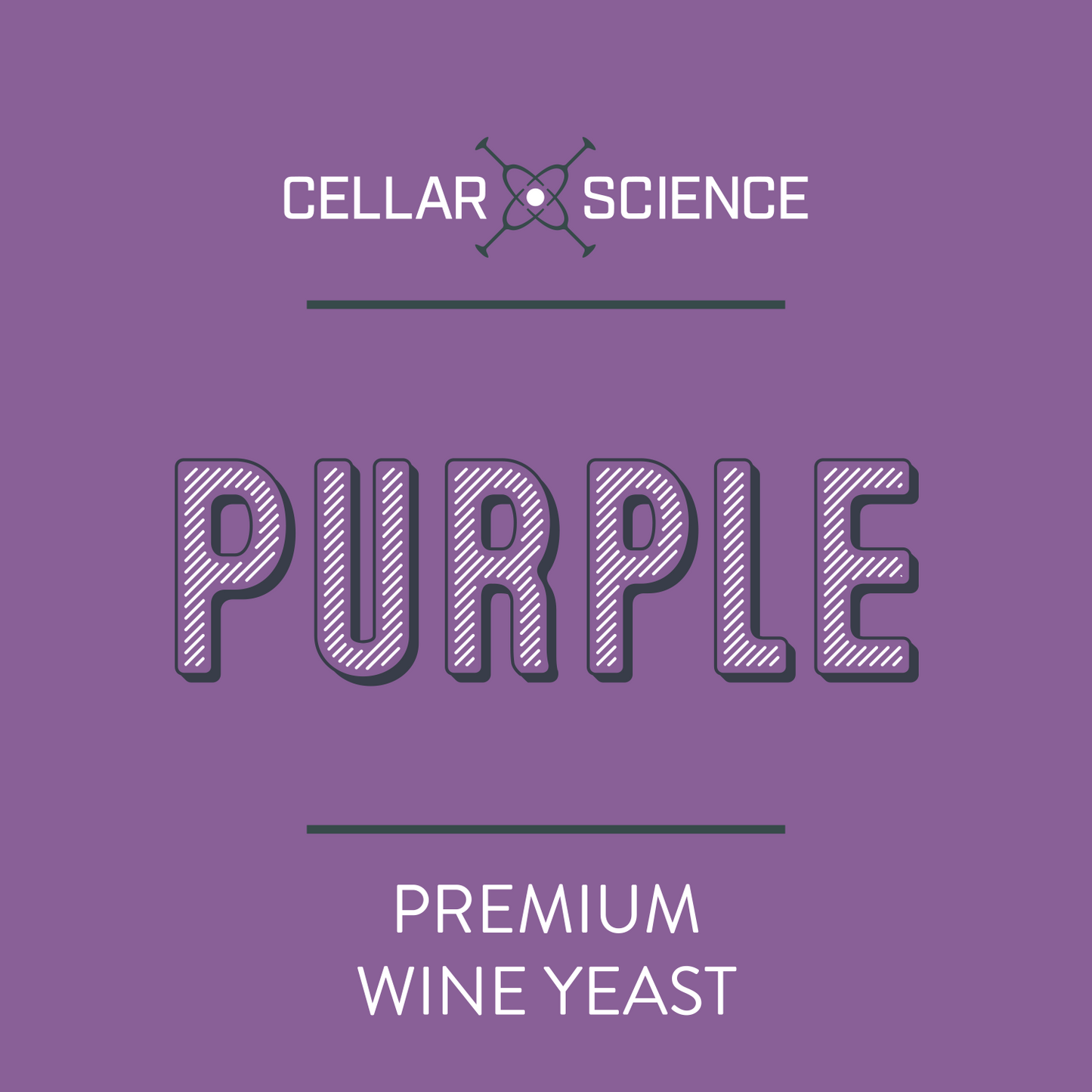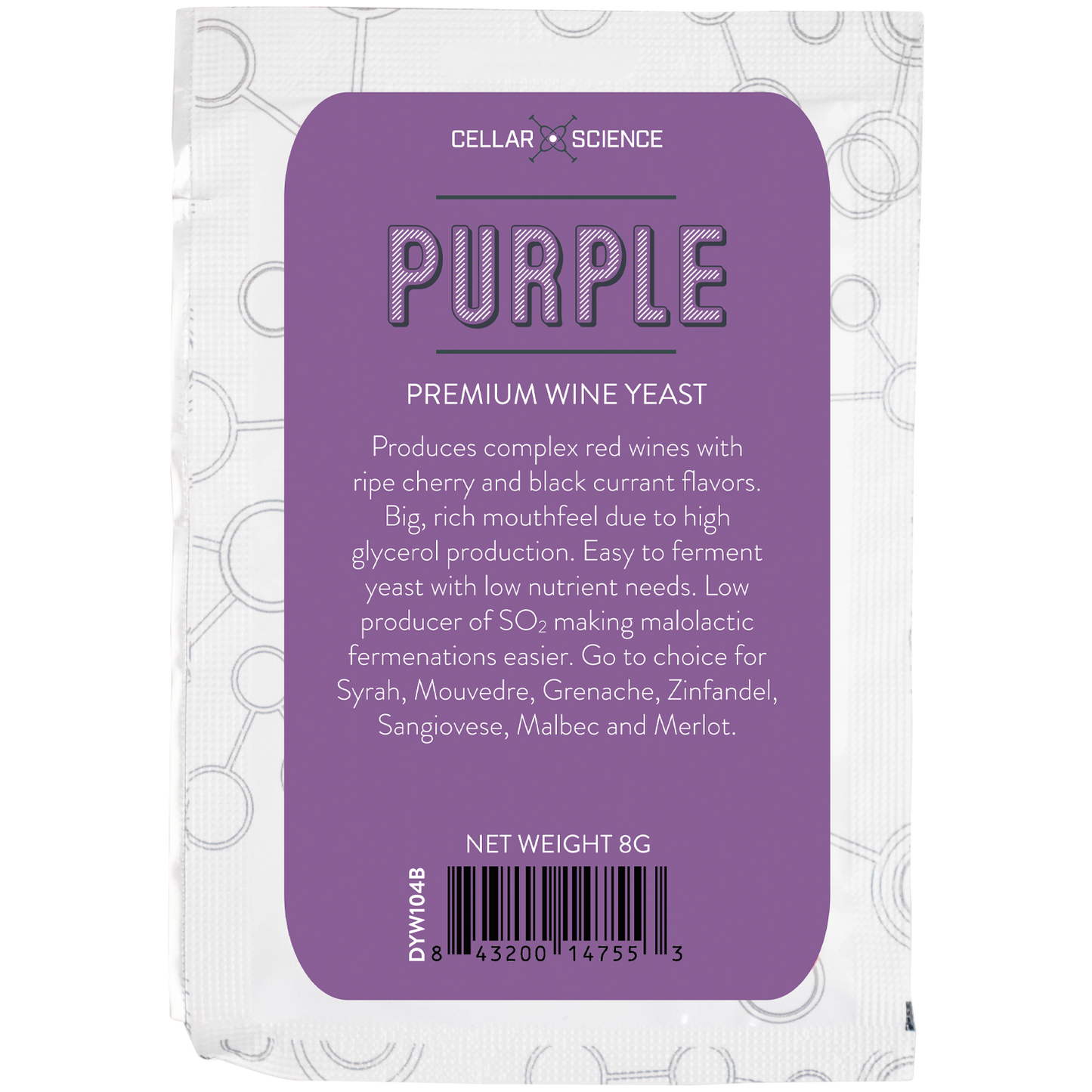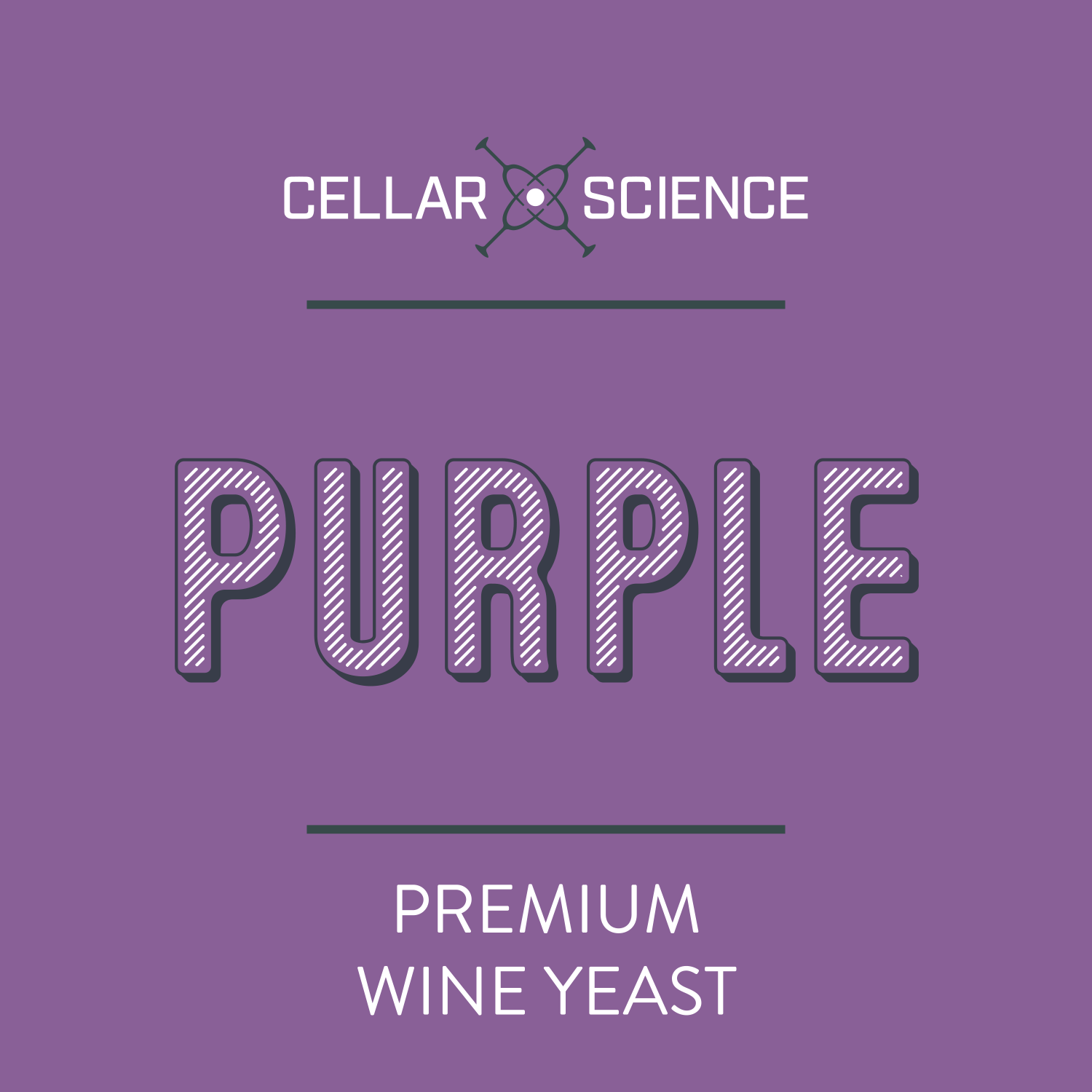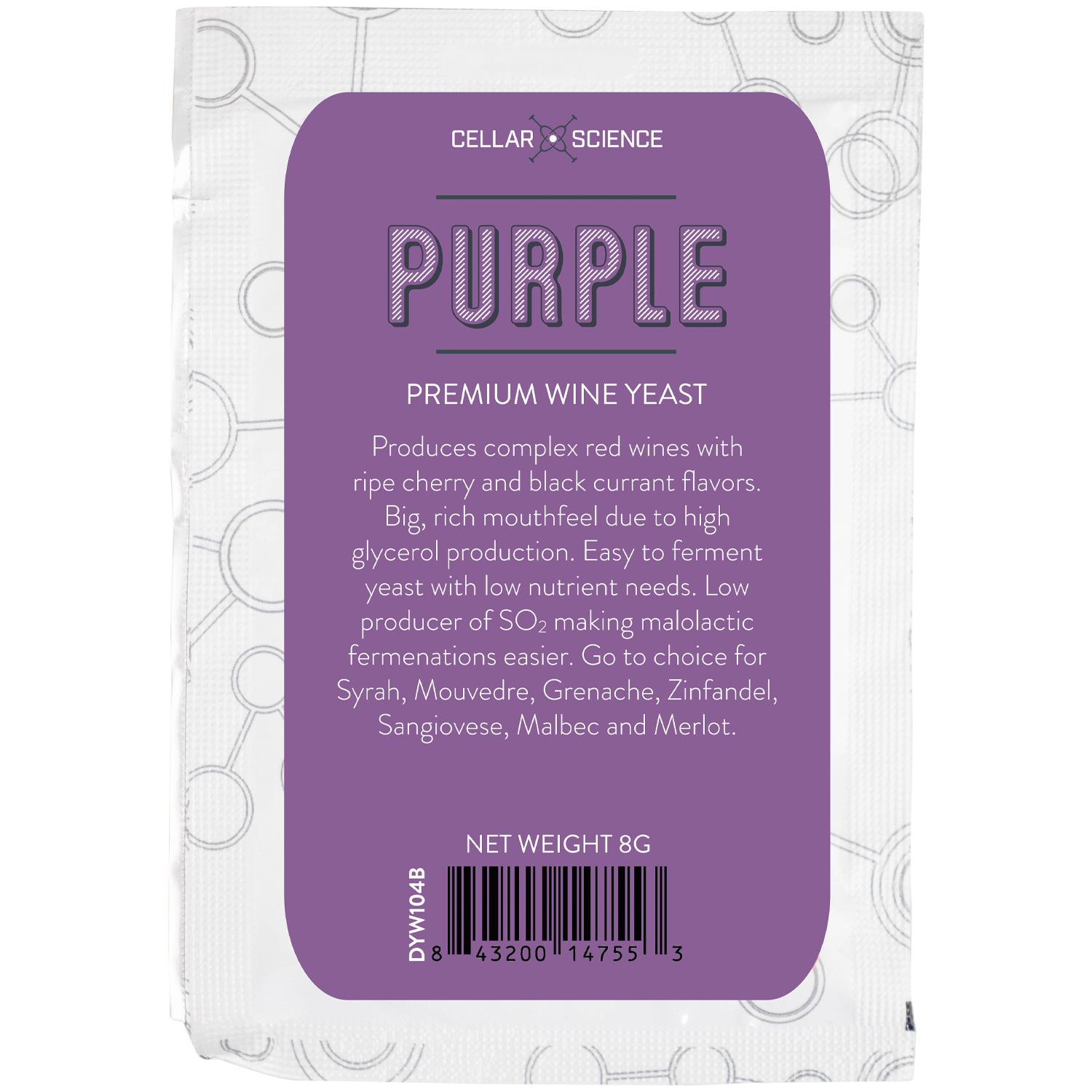Cellar Science
PURPLE Dry Wine Yeast
PURPLE Dry Wine Yeast
- Big mouthfeel from high glycerol /polysaccharide /mannoproteins
- Flavors of Cherries, Raspberries, Figs, Jam, Red currant
- High alcohol tolerence
- Low nutrient needs
- Perfect for Syrah, Zinfandel, Pinot, Merlot, Malbec, Sangiovese, Grenache
Our go-to choice for those reds originating from the Cote du Rhone in France such as Syrah, Grenache, and Mouvedre. Also a top choice for Zinfandel, Sangiovese, Malbec, Merlot, and Pinot. Induces flavors of ripe cherries, raspberries, red curant, figs and jam. Due to its production of glycerol and release of mannoproteins it produces full bodied, rich red wines. PURPLE has a very low production of SO2 which is favorable for an easy malolactic fermentation (MLF) post fermentation. PURPLE is also an easy to ferment yeast with a low nutrient needs which is the opposite of our Big Red strain. It also has a "killer" quality and naturally inhibits unwanted bacterial or wild yeast growth during fermentation.
Start Time: Slower
Alcohol tolerance: 15%
Nitrogen demand: low
Production of volatile acidity: Low
Production of SO2: Low
Ease to Ferment with MLF: Average
YAN Requirement @ 23 Brix: 200 ppm
Malic Acid Consumption: Low
Yeast Type: Cerevisiae
Optimal Fermentation Temp: 65–85°F
Optimal Fermentation Temp: 65–85°F
Proper yeast hydration helps ensure a healthy fermentation. For every gram of yeast, mix .25 g of FermStart yeast nutrient with 25 ml of sterilized tap water between 104–106°F/40–41°C. When water reaches 104°F/40°C, sprinkle yeast into water and stir gently. Allow the slurry to stand undisturbed for 15 minutes and then stir again. For every gram of yeast used add 25 ml of clean must to the yeast slurry and let stand 15–20 minutes. If necessary, use additional must to adjust yeast slurry to within 18°F of must temp before pitching. For a complete nutrient schedule sufficient for most fermentations, add 1.5 g of FermFed DAP Free per gallon of must at the first sign of fermentation and 1 g of FermFed per gallon of must after 1/3 sugar depletion.




